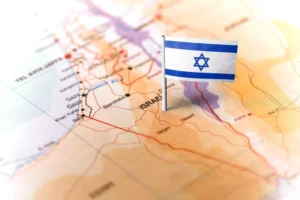I didn’t attend Tim Keller’s funeral in New York City two weeks ago, but I would have loved to. I devoured his book “The Prodigal God” years ago, and I learned so much from the simple way he explained spiritual concepts.
At least 2,000 people made it to the funeral of the bestselling author and former pastor of Redeemer Presbyterian Church in New York City. But Keller wasn’t always so well-known.
In “Timothy Keller: His Spiritual and Intellectual Formation,” Collin Hansen devoted a chapter to Keller’s time as a young pastor in Hopewell, Va. For nine years, the future pastor of an internationally known New York City church shepherded a congregation in the now 23,000-person town of Hopewell.
Everyone is called to do something
I’m not a bestselling author, and I’ve never led a well-known ministry. But when I look at my tasks and responsibilities, I often mentally categorize them based on their supposed significance. Some seem more important, while the humdrum tasks seem to just clutter my day.
A couple of weeks ago I went to a sewing group my sister-in-law attends. The women — mostly senior adults — sew dresses to send to little girls around the world through Operation Christmas Child. Several women visited with each other as they sat at sewing machines and sergers, churning out dress after adorable little dress.
One woman sat at a separate table with no machine in front of her. She explained that she doesn’t know how to sew, so instead she hand-stitches tiny buttons on to pockets while she prays for the child who will wear each dress. Sue didn’t seem bothered by her smaller role, one that she’s now filled for 11 years. “There’s always something you can do,” she told me.
But are we willing to do that something — no matter what it is? Are we willing to sew buttons? Or take a Hopewell assignment? Or are we trying to go straight to New York City?
Every calling involves the ordinary
Elisabeth Elliot first captured public attention after the dramatic death of her first husband, Jim, at the hands of an unreached Ecuadorian tribe. Interested observers continued to follow her story as she returned to the tribe to continue the mission her husband had started: taking the gospel to the Waodani people.
Over the years, Elisabeth wrote about 40 books. Other people wrote books — and made movies — about the Waodani story, cementing Elisabeth’s position among well-known Christian figures. What a glorious story, right? What drama. What intrigue. Living on the frontlines of the mission field, taking the gospel to a people group who had never heard it before, watching a previously unreached tribe warm to the outside world and the gospel — it must have been terribly exciting, right?
Sometimes.
After Jim’s death, Elisabeth continued working at the mission station, taking on several of Jim’s duties. In “The Savage My Kinsman,” she wrote of translation work, medical work, teaching, and guiding new Christians. All classic, fulfilling missionary work.
But that wasn’t all. Elliot wrote:
“There was much maintenance work to oversee on the station: the clearing of weeds on the airstrip, the planting of pineapples and bananas, the constant work to keep the jungle back from the trails and clearings, the mending of fences and thatched roofs … besides the ordinary work of living without many conveniences. I did the things that presented themselves to me as duties each day, and in the doing of these I learned to know God a little better.”
Elisabeth Elliot was called, for a time, to jungle life as a missionary — and all the inglorious tasks that entailed. When she lived among the tribe that had killed Jim, she continued translation work. She also washed clothes and dishes by hand in the river. Every day. But even those tasks belonged to her calling.
“Does God ask us to do what is beneath us?” Elisabeth wrote in “Joyful Surrender.” “This question will never trouble us again if we consider the Lord of heaven taking a towel and washing feet.”
Every calling is important
Some people attended Tim Keller’s funeral because he was a bestselling author who led a thriving church in one of the most well-known cities in the world. Other attendees knew him from Hopewell, Va. God placed both callings on Keller’s life, and neither was less important than the other.
We humans strain ourselves in search of greatness. Until God changes our hearts, we long to do something that everybody else recognizes as big and important. The disciples that once quarreled over first place later preached wholeheartedly on deserted roads and instructed listeners to honor everybody else.
“If the God of the Bible exists … then every good endeavor, even the simplest ones, pursued in response to God’s calling, can matter forever,” Keller wrote in “Every Good Endeavor: Connecting Your Work to God’s Work.”
Maybe my callings won’t bring me fame or even respect. But am I still willing to throw myself into those callings because God has called me to them? Are you willing to do the same?
Copyright 2023 Lauren Dunn. All rights reserved.












